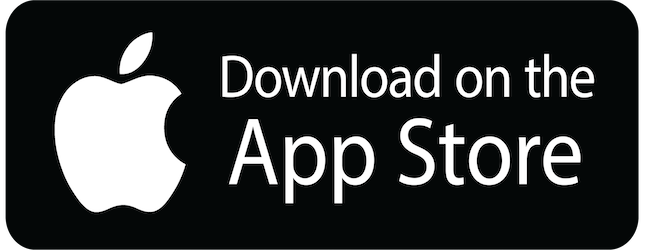The 100 most important acronyms in English, Part 1

We're starting an article series on the 100 most important acronyms that are used in the English language.
- Part 1: General acronyms
- Part 2: Business acronyms
- Part 3: Internet slang
- Part 4: Acronyms for technology and medicine
- Part 5: Government and military
- Part 6: Organizations and People
An "acronym" is a word that's made up of the first letters of other words (usually). English speakers use acronyms a lot. You'll read and hear them everywhere – on the Internet, in business, in the government.
The examples below are acronyms that almost all English speakers know and use commonly.
-
"Q&A"
Tweet This!(Question and answer)
A "Q&A" is a kind of interview. One person or many people ask questions, and someone answers them.
Save your questions, and we'll have a Q&A at the end of the presentation.
-
"VIP"
Tweet This!(Very Important Person)
A VIP is someone who's important. A VIP might be a well-known author at an academic event, a celebrity at a night club, or a wealthy donor at a charity event.
Here's something that you might read on a sign hanging near the entrance to a room at a party:
Reserved for VIPs
-
"3D"
Tweet This!(3-dimensional)
Something that has height, width, and depth is "3D". Things that are flat are "2D". So a square drawn on a piece of paper is 2D, but a box is 3D.
If someone told you that they saw a recent action movie in a theater, you could ask this:
Did you see it in 3D?
-
"ID"
Tweet This!(Identification)
Your "ID" is your identification. That might mean a document that proves who you are, like a passport or driver's license:
Can I see your ID please?
Another kind of "ID" is a name that you create for yourself on a website or computer program.
-
"I.Q."
Tweet This!(Intelligence quotient)
"I.Q." is a measurement of how smart someone is. The average I.Q. is 100. If you have an I.Q. greater than 100, it means that you're smarter than average.
Just because you have a high I.Q. doesn't necessarily mean that you'll be successful in life.
-
"RSVP"
Tweet This!(Répondez s'il vous plaît)
Most English speakers know the phrase "RSVP" without knowing that it comes from French. To "RSVP" means to confirm whether you will attend a party. It's common to ask guests to RSVP to a wedding, for example.
Please RSVP by June 8th.
-
"AKA"
Tweet This!(Also known as)
Use "AKA" to introduce someone's nickname:
Allow me to introduce my friend Jack Monroe, AKA "Poppa Jack".
You would especially use "AKA" to introduce people like boxers, fighters, and T.V. characters.
-
"DIY"
Tweet This!(Do-it-yourself)
A "DIY" project is something that you do at home which people usually buy or hire professionals for. Some examples of DIY projects include:
- Building your own furniture
- Brewing your own beer
- Renovating a room in your house
They're always taking on little DIY projects around the house.
-
"T.G.I.F."
Tweet This!(Thank God it's Friday!)
People say and write "T.G.I.F." to celebrate the end of the work week. It means that you're happy that the weekend is about to begin.
-
"R.I.P."
Tweet This!(Rest in peace)
"Rest in peace" is something that you can say when someone has died. The acronym "R.I.P." is even more common than saying or writing "Rest in peace". You might see this in the comments under a news story about a celebrity who just passed away.
R.I.P. Prince
-
"BYOB"
Tweet This!(Bring your own booze/beverage/beer)
If a party is "BYOB", it means that you're supposed to bring drinks for yourself.
We're having a dinner party Saturday night starting at 7. It's BYOB, but no need to bring any food.
-
"KIT"
Tweet This!(Keep in touch)
You can write "KIT" to someone who you're not going to see again soon. For example, you can write this in a card for a coworker who's leaving to start a new job.
We'll miss you! KIT
-
"POV"
Tweet This!(Point of view)
"POV" means "Point of view". This phrase has several meanings.
- A person's "POV" can mean their opinion.
- In filmmaking, the "POV" means where the camera is placed.
- In literature, it means who is narrating a story.
Try to think about it from the POV of someone who's trying to run a small business.
-
"M.O."
Tweet This!(Modus Operandi)
A person's "MO" is their particular way of doing something. It's a technique or a pattern that's specific to that person. When you talk about someone's "M.O.", you seem kind of suspicious of them.
That's his M.O. – he offers money to businesses that are struggling and then takes them over.
The phrase "modus operandi", which "M.O." is short for, is from Latin.
-
"A.D."
Tweet This!(Anno Domini)
The Western calendar system counts years based on when Jesus Christ is thought to have been born. That year is called "0", and every year after that is marked as "A.D."
The Roman Republic was dissolved in the year 1453 A.D.
"A.D." comes from "Anno Domini", which is Latin.
-
"B.C."
Tweet This!(Before Christ)
In the Western calendar system, years before year 0 are marked as "B.C."
Experts believe that thet pyramids at Giza were build in about 2500 B.C.





